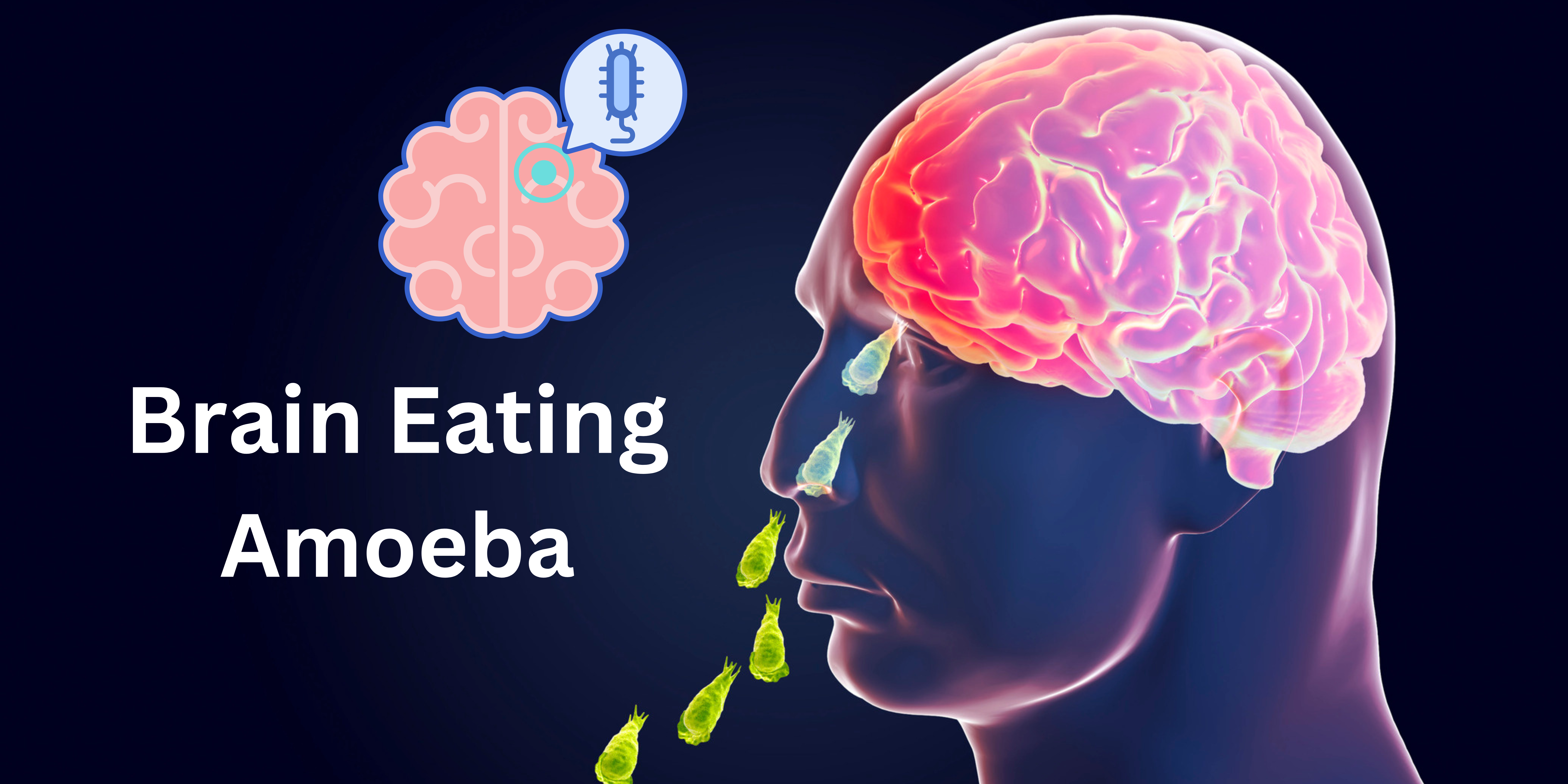Introduction
The emergence of brain-eating amoeba infections in Kerala has raised significant public health concerns. This blog delves into the details of these infections, the challenges posed by the brain-eating amoeba, and the essential measures needed to prevent further cases.
Recent Cases and Transmission
In 2024, Kerala has reported multiple cases of infection caused by Naegleria fowleri, commonly known as the brain-eating amoeba. This organism thrives in warm freshwater bodies like lakes, rivers, and poorly maintained swimming pools.
- Kozhikode: A 12-year-old boy contracted the infection after bathing in a contaminated water source. He is currently undergoing treatment (mint) (Hindustan Times).
- Malappuram: A tragic case involved a five-year-old girl who succumbed to the infection in May 2024 after exposure to the amoeba in a local river (mint) (Hindustan Times).
- Alappuzha: A 15-year-old boy died from primary amoebic meningoencephalitis (PAM), highlighting the severe risks associated with this amoeba (mint).
What is Naegleria fowleri?
Naegleria fowleri is a single-celled organism that can cause a rare and devastating brain infection called primary amoebic meningoencephalitis (PAM). The amoeba typically enters the human body through the nose when people dive or swim in contaminated water. Once in the body, it travels to the brain, causing severe inflammation and damage.
Symptoms of Brain-Eating Amoeba Infection
The initial symptoms of PAM can be easily mistaken for other illnesses but quickly become more severe:
- Early Symptoms: Headache, fever, nausea, and vomiting.
- Advanced Symptoms: Stiff neck, confusion, loss of balance, seizures, and hallucinations.
The infection progresses rapidly, often leading to death within days. The fatality rate is exceedingly high, with most patients not surviving the infection.
Preventive Measures
Preventing infection by Naegleria fowleri involves avoiding exposure to contaminated water and taking specific precautions:
- Avoid Warm Freshwater: Refrain from swimming in warm freshwater bodies, especially during hot weather.
- Use Nose Clips: When swimming or diving in freshwater, use nose clips to prevent water from entering the nasal passages.
- Maintain Swimming Pools: Ensure that swimming pools are properly chlorinated and maintained.
- Sterile Water for Nasal Cleaning: Use only sterile or boiled water for nasal rinsing and cleansing practices.
Public Health Response
The Kerala Health Department has issued warnings and implemented measures to prevent further infections:
- Surveillance and Monitoring: Enhanced surveillance of water bodies and immediate closure of contaminated sites.
- Public Awareness Campaigns: Educating the public about the risks and preventive measures.
- Healthcare Preparedness: Training healthcare providers to recognize and treat PAM promptly.
Conclusion
The recent cases of brain-eating amoeba in Kerala underscore the importance of public awareness and preventive measures. While the infection is rare, its high fatality rate necessitates caution. By following recommended guidelines and staying informed, individuals can protect themselves and their families from this deadly pathogen.
For more detailed and updated information, visit the Kerala Health Department and stay tuned to local health advisories.

